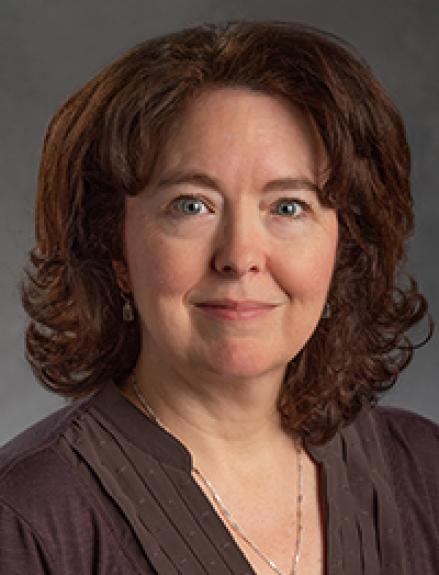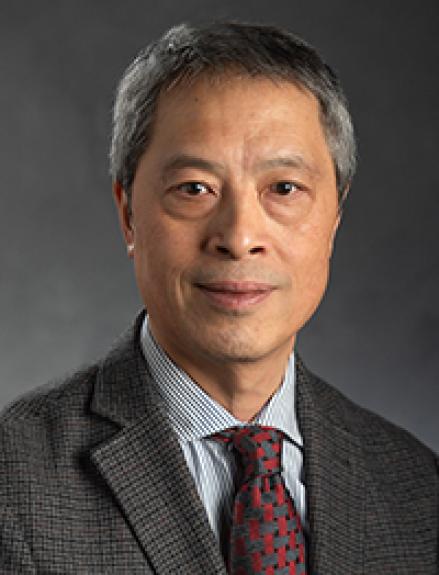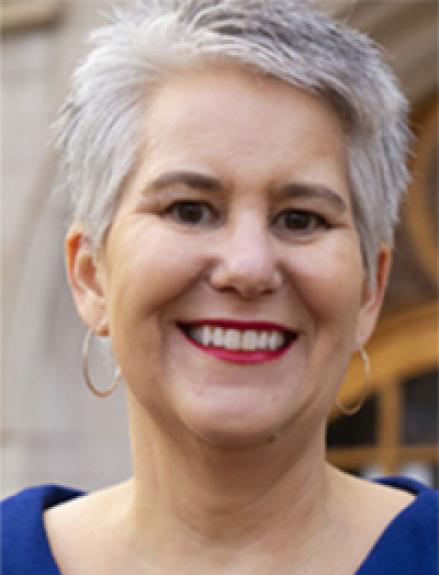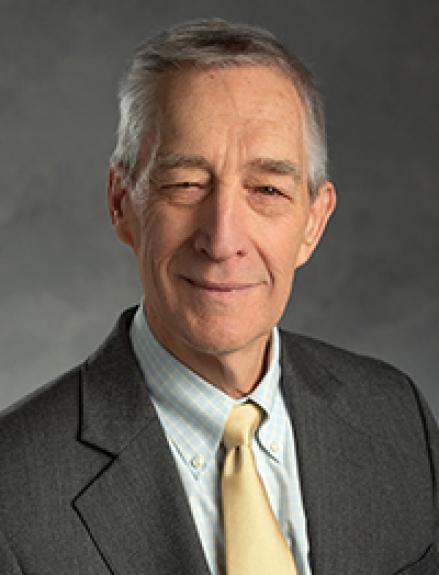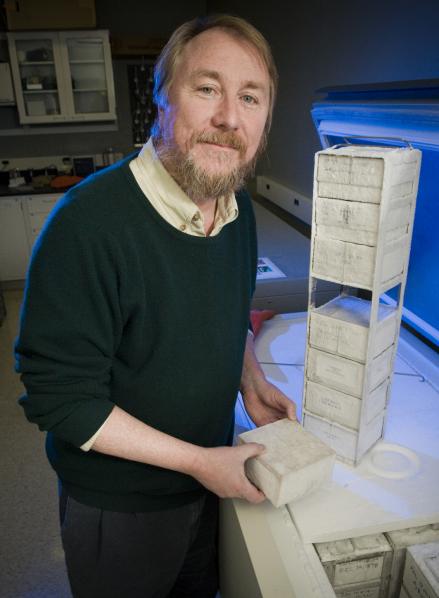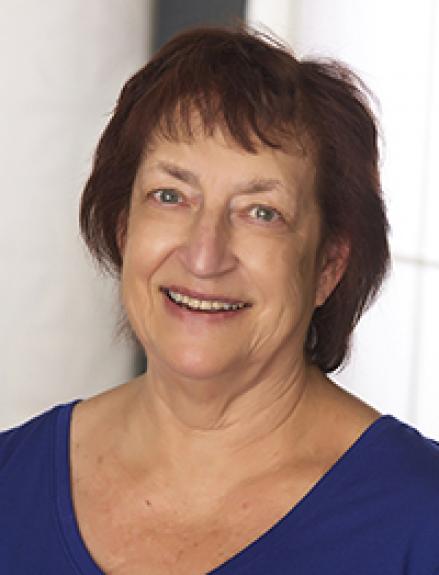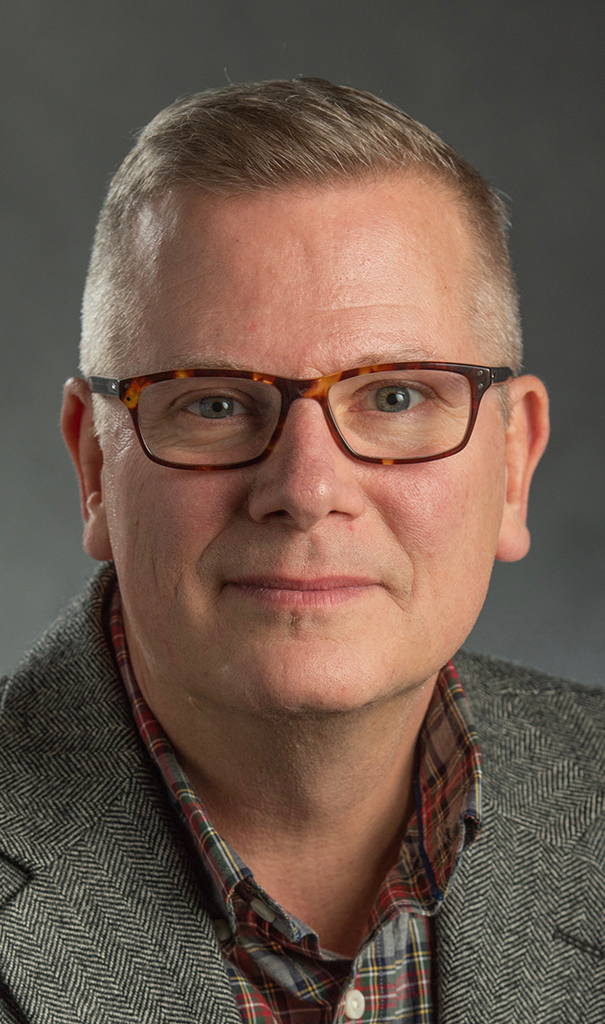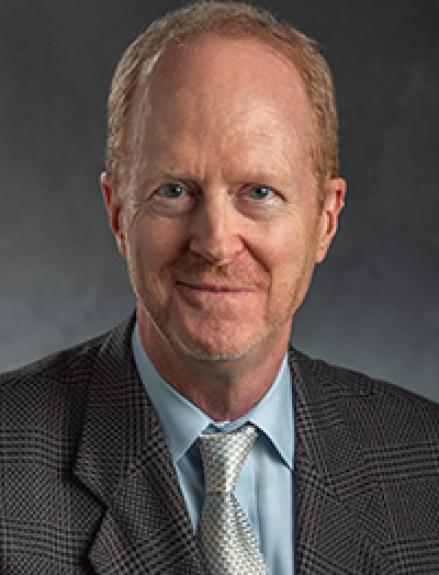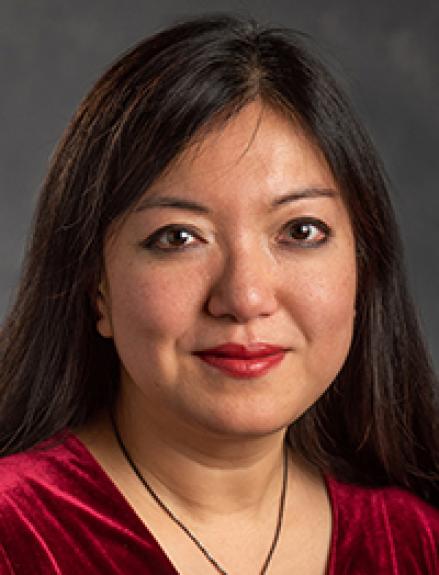Holly Brophy-Herb
Department of Human Development and Family Studies, College of Social Science
Holly Brophy-Herb has dedicated her career to scholarship on enhancing the quality of life of young children and families from vulnerable populations, including children born to adolescent mothers and living in poverty. Specifically, her scholarship focuses on the practices of parents, caregivers and teachers that enhance the socio-emotional development of vulnerable young children, including the ways in which mindfulness, reflective capacity and mentalization are related to emotion-socialization practices and mental health.
Brophy-Herb has designed interventions to address key problems these people face by identifying the specific components of interventions that make a difference in teachers’ and caregivers’ practices and children’s outcomes. Her award-winning curriculum, Building Early Emotional Skills, adapted in collaboration with MSU Extension to enhance parent and caregiver skills for children from birth to five years of age, uses a relationship-based model to enhance the early development of infants and toddlers across the nation, particularly children at risk for socio-emotional challenges.
Brophy-Herb’s research includes nearly $20 million in federal funding and state contracts and $1.6 million in training and technical assistance efforts to Head Start programs. Her work includes more than 70 peer-reviewed publications, in addition to books and chapters.
Brophy-Herb is a heralded teacher; one student raved, “Professor Brophy-Herb was an AMAZING professor! She cared and made sure we all understood everything in the class.” She is an impressive mentor to graduate students, encouraging them to do work that benefits the public and to disseminate their work widely.
Brophy-Herb was selected as an Outstanding Faculty Researcher in the College of Social Science and earned the University Extension Key Partner Award. She received honors for her curriculum development from the National Extension Association of Family and Consumer Sciences and serves as editor-elect of “Infant Mental Health Journal.” Brophy-Herb co-founded the Michigan Infant-Toddler Research Exchange, a collaboration of researchers across major universities in Michigan.
For her research and outreach to the world’s most vulnerable populations, excellent teaching and mentoring, and service to MSU and her profession, HollyBrophy-Herb is most deserving of the William J. Beal Outstanding Faculty Award.
Jiquan Chen
Center for Global Change and Earth Observations
Department of Geography, Environment and Spatial Sciences
College of Social Science
Chen is one of the leading ecosystem scientists and geographers in the world. In this era of extensive and rapid environmental impacts, Chen’s research lies at the cutting-edge of ongoing efforts to measure and to monitor the pace and spatial distribution of change. His research is inherently multidisciplinary and focuses on ecosystem science and landscape ecology across the globe in diverse ways, including edge effects in fragmented landscapes, carbon and water fluxes in the ecosystem, and the assessment of human- environment interactions. His work has major implications for important real-world issues, including landscape and stream management, the impact of grazing on grasslands and the institutional regulations of urban systems.
An example of Chen’s work was his contribution to the Forest Summit on Ecosystem Management organized by President Clinton in 1993, where his research on edge effects and the relationship to the riparian zone was used. More recently, he established the U.S.-China Carbon Consortium that integrated the FLUXNET communities of the two countries.
Chen has published 12 books and more than 400 peer-reviewed articles in such journals as “Ecosystems, Landscape and Urban Planning,” “Nature,” “PLOS ONE” and “Remote Sensing of Environment” — 170 of them since arriving at MSU in 2014. He has obtained approximately $28 million in grants, many from NASA and the National Science Foundation.
Chen has been an outstanding mentor, having graduated 18 doctoral and 20 master’s students. His doctoral students have obtained excellent positions in such places as the Chinese Academy of Sciences, the Lawrence National Lab, the University of Alberta, the University of Wisconsin and the World Bank.
Chen has been a peer reviewer for numerous journals and has served on approximately 20 journals’ editorial boards, including as editor-in- chief for Ecological Processes since 2016. He has been a lead editor for two book series, “Landscape Ecology” and “Ecosystem Science and Applications.” Chen has been recognized with several prestigious awards, including being named a fellow in the Ecological Society of America in 2011 and the American Association for the Advancement of Science in 2014.
For his many accomplishments as a scholar and mentor and his extensive service to MSU and his profession, Jiquan Chen is richly deserving of the William J. Beal Outstanding Faculty Award.
Amy DeRogatis
Department of Religious Studies College of Arts and Letters
Amy DeRogatis is a transformative scholar and teacher, who has shaped the next generation of religious studies thinkers and broadened both the scope and reach of religious studies scholarship.
DeRogatis’s principal scholarly interests are American religion and culture; nineteenth-century Protestant home missionaries; religion, gender, and sexuality; American evangelicalism; and religion in the Midwest.
DeRogatis and her co-PI, Isaac Weiner, from Ohio State, work collaboratively on a groundbreaking digital humanities initiative, entitled, the American Religious Sounds Project. The project curates sound samples that document religious traditions and practices across the United States, presenting a vivid, experiential portrait of religious and cultural diversity.
With more than a million dollars in funding from the Andrew W. Mellon Foundation and the Henry Luce Foundation, the ARSP has grown into a resource for scholars conducting primary research, while fostering broad public engagement through an online gallery and exhibits.
DeRogatis is the author of two well- regarded monographs: “Saving Sex: Sexuality and Salvation in American Evangelicalism” and “Moral Geography: Maps, Missionaries and the American Frontier,” and more than 30 scholarly articles and book chapters. “Saving Sex” has been favorably reviewed in both academic journals and the popular press, having found a public audience upon being featured in the New York Times, The Atlantic Monthly and Salon.com.
DeRogatis creates extraordinary opportunities for students to learn and to grow. Her passion for creating inclusive learning spaces has been a valuable component of her work as the Faculty Excellence Advocate for the College of Arts and Letters and in her own classroom. A former student, now faculty at University of Massachusetts, Boston, writes, “Dr. DeRogatis’s course showed us the value and virtue of bringing a scholarly rigor to some of the most controversial topics in American society today.
Her teaching was a model for how to foster an inclusive classroom space in which students could discuss these ideas openly, fiercely and always with empathy, and it showed me a way forward for my career in academia.”
For all that she has done to help the MSU community live up to its highest values of inclusion and excellence through her research, teaching and service, Amy DeRogatis is a most worthy recipient of the William J. Beal Outstanding Faculty Award.
Stephen Esquith
Residential College in the Arts and Humanities
Stephen Esquith is one of the rare academics whose research, innovative and dedicated teaching, and inspiring leadership are inextricably intertwined with humor, humanity and ethical and political commitments to making the world a better, more peaceful and democratic place.
Esquith’s research and teaching are vibrantly interdisciplinary. A political scientist and philosopher, Esquith’s work has focused on issues of justice, ethics, the rule of law, the problem of democratic political education, mass violence and reconciliation, and moral and political responsibility.
His first book, “Intimacy and Spectacle: Liberal Theory as Political Education Contestations,” is a critique of classical and modern liberal political philosophy; his second, “The Political Responsibilities of Everyday Bystanders,” explores mass violence, democratic education and bystander responsibilities in political situations, such as those in South Africa and Rwanda.
He has edited several collections on democracy and development and authored numerous articles, most recently on children’s human rights, democratic political education and peacebuilding.
Esquith’s research is inextricably tied to teaching and civic engagement, his theories on democratic education, and the role of the arts in peacebuilding. In Mali, he has led five MSU study-abroad programs on ethics and development, focused on civic engagement since 2004. In the wake of Mali’s 2012 coup, Esquith worked with Malian community partners and MSU students developing innovative projects to promote peace and reconciliation, including the co-creation of four children’s picture books in French, Bamanankan and English for a peacebuilding project in Mali and the Mali Peace Game.
These projects have likewise informed Esquith’s engagements in Michigan, where he has pursued projects with refugee children in Lansing and brought classes on philosophy and ethics into public schools.
Esquith’s dedication to these principles is embodied in the Residential College in the Arts and Humanities, a college that he, as founding dean, nurtured from an idea to the thriving living–learning community that it is today. In so doing, he has profoundly shaped the map of MSU for years to come.
For his profoundly innovative and impactful research, teaching and service to MSU as well as his profound commitment to justice, ethics and moral and political responsibility throughout his career, Stephen Esquith is richly deserving of the William J. Beal Outstanding Faculty Award.
Xuefei Huang
Department of Biomedical Engineering Department of Chemistry
College of Engineering and College of Natural Science
Xuefei Huang has developed an internationally recognized, award-winning research program focused on the chemistry and biology of carbohydrates, and engineering carbohydrate-based constructs and glycol- conjugates for biomedical applications and glycol nanomaterials for molecular imaging and targeted drug delivery. He has developed innovative strategies to synthesize complex carbohydrates in nature and to study their biological functions. The synthetic methodology his lab has developed has been widely adapted by research groups throughout the world.
Huang’s lab is actively researching the establishment of carbohydrate-based, next-generation vaccines, focusing on cancer and infectious disease indications. The constructs from his lab could elicit the strongest antibody responses against cancer and showed promising protective effects in mouse tumor models compared to current gold standard treatments. One of his major accomplishments has been the synthesis of carbohydrates and glycol- conjugates involved in cancer metastasis, inflammation and microbial infections. He has published more than 120 articles, with an H-index of 39 and garnered more than $20 million dollars in research funding.
Huang teaches both large enrollment undergraduate classes and graduate courses. He has trained 20 Ph.D. and four master’s students along with 21 postdoctoral associates and five visiting scholars, while also serving on approximately 30 graduate guidance committees at any given time. Students and postdocs trained in his lab have gone on to successful careers in both academia and industry.
Huang is highly active in serving the community. He has been an associate editor and an editorial advisory board member of journals dedicated to carbohydrate research. He has reviewed manuscripts and grants for federal funding agencies and foundations. Huang was elected the chairperson of the American Chemical Society Carbohydrate Chemistry division as well as, in 2013, a fellow, an honor bestowed on less than one percent of ACS’s 150,000 members.
Huang has been recognized by multiple awards, including the Horace Isbell and Melville Wolfrom Awards from the American Chemical Society, Carbohydrate Chemistry division, for excellence in and promise of continued quality of contribution to research in carbohydrate chemistry. In 2020, Huang was elected as a fellow of the American Association for the Advancement of Science.
For his significant accomplishments as a scholar, teacher, mentor and leader, Xuefei Huang richly deserves Michigan State University’s William J. Beal Outstanding Faculty Award.
Richard Lenski
Departments of Microbiology and Molecular Genetics, and Integrative Biology; The BEACON Center for the Study of Evolution in Action, College of Natural Science Department of Plant, Soil and Microbial Sciences and MSU AgBioResearch
College of Agriculture and Natural Resources
Richard Lenski is the Hannah Distinguished Professor of Microbial Ecology and one of the most preeminent evolutionary biologists of his generation. Before Lenski, the study of evolution involved the examination of fossil records or comparative analysis of living organisms. In 1988, he fundamentally changed the field to one that could be directly queried by laboratory experimentation when he inoculated twelve flasks with the bacterium, E. coli, in a simple growth medium. Every day, these bacteria divide approximately seven times, and the next day a subset of the culture is transferred to a new flask.
Lenski’s lab has continued this experiment for more than 30 years, resulting in more than 60,000 generations of evolution for these E. coli, which have been characterized for the dynamics of adaptation and divergence and used to identify the genetic changes responsible for adaptation. Additionally, this research experiment has advanced understanding on numerous fundamental evolutionary principles, including the rate of evolution, reproducibility of evolution and pathways to acquire beneficial mutations. There’s even been the development of new quasi bacterial species. The project is ongoing.
Throughout his teaching career, Lenski regularly gave a series of lectures in graduate- level microbiology and molecular genetics classes, receiving excellent student evaluations.
In his lab classes, his students greatly appreciated his hands-on involvement and investment in their learning. An outstanding mentor, Lenski’s students are now faculty at such universities as Yale, Stanford, ETH Zurich and the University of Texas, Austin. In recognition of his distinguished accomplishments in interdisciplinary research and mentoring, he received the 2020 D.C. White Award from the American Society for Microbiology.
Lenski’s many recognitions include a MacArthur Genius Fellowship and election as president of the Society for the Study of Evolution. He is a fellow of the American Association for the Advancement of Science and cofounder of the National Science Foundation BEACON Science and Technology Center for the Study of Evolution in Action at MSU. From 2019 to 2022, Lenski will serve as a council member of the National Academy of Sciences, to which he was elected for his distinguished and continuing achievements in original research in 2006.
As one of the most renowned evolutionary biologists in history as well as a trusted mentor, dedicated faculty member, and valued colleague, Richard Lenski is a most worthy recipient of the Michigan State University William J. Beal Outstanding Faculty Award.
Merry Morash
School of Criminal Justice
College of Social Science
Merry Morash is a pioneer in the field of criminal justice, with research broadly focused on gender crime and justice. Her primary research addresses the nexus of correctional and social policies, specifically as they relate to women’s recidivism and risk; female offenders’ experiences and identity processes when incarcerated, on probation, and on parole; and the gendered effects of incarceration.
Other major themes in her research concern female police officers’ experiences of harassment and discrimination, gendered violence in the home and in schools, and gendered pathways to delinquency and crime.
Morash recently completed a six-year, National Science Foundation study of the effects of probation and parole services on women. The study integrated theories of communication and psychology with criminal justice theories of effective supervision and re-entry from prison.
Morash has published more than 100 peer-reviewed articles in such prestigious journals as “Criminology, Criminology and Public Policy,” “ Journal of Research in Crime and Delinquency“ and “Criminal Justice and Behavior.” She has published seven books, four as author and three as editor. She has been awarded more than $2.5 million in funding to support her research.
Morash helps shape the future of her students in profound ways. As a mentor, she provides her students with research opportunities that help them develop essential research skills, including executing complex data collection processes, conducting qualitative and quantitative data analyses, and strategically disseminating innovative research findings in journals, at conferences, and to community stakeholders.
Her willingness to help students and straightforward communication style have made Morash highly sought after for learning experiences and dissertation committees. Morash received outstanding mentoring awards from the American Society of Criminology and the Academy of Criminal Justice Sciences.
Morash has received extensive recognition for her work, including being named a fellow of the American Society of Criminology and receiving a Lifetime Achievement Award from the American Society of Criminology’s Division on People of Color and Crime and the Distinguished Scholar Award from the society’s Division on Women and Crime. She currently serves on several editorial boards.
For the legacy she has built through research, mentoring and service, Merry Morash deserves Michigan State University’s William J. Beal Outstanding Faculty Award.
Robert Roznowski
Department of Theatre
College of Arts and Letters
Robert Roznowski is an award- winning actor, director, writer and educator, who uses the collaborative nature of theater to influence the lives of students, faculty and audiences. Roznowski’s research examines the intersection of acting and psychology. His books, “Inner Monologue in Acting” and “Roadblocks in Acting,” examine the complex thought processes of the actor when creating a character. His upcoming book, “The Introverted Actor: Practical Approaches,” again examines the actor’s psyche. His articles and chapters are a landscape of forward- thinking acting pedagogy and his national and international reputation have made him a leader in this field.
Since arriving at MSU, Roznowski has directed nearly 50 productions on campus and internationally. In his position as head of acting and directing, he has created two unique academic graduate and undergraduate programs. The distinctive focus of the Master of Fine Arts program is its preparation of both the artist and university- level educator; it is the only theater program of its kind in the nation. Numerous graduates who have obtained prestigious teaching positions cite Roznowski’s influence and compassion on their current teaching practices.
His curricular innovations to the Bachelor of Fine Arts program challenges the traditional, rigid set of prescribed tracks to allow students the opportunity to explore film, musical theater, classical theater and other subjects that complement students’ individual artistic development through careful mentorship.
In the classroom, Roznowski is equally collaborative when working with undergraduate and graduate students to assess the ever-evolving landscape of the acting profession. His classes are intellectually challenging, pedagogically experimental and require deep self-analysis related to the craft. His teaching has been widely praised through numerous awards, including the Michigan Distinguished Professor of the Year from the President’s Council of State Universities of Michigan.
Roznowski’s service to the university is tireless, including his most recent endeavor in which he created resources for faculty and staff to work with students in distress in the classroom. He also guides the Department of Theatre’s largest outreach effort as the artistic director of Summer Circle Theatre.
For the collaborative and pioneering accomplishments that he has attained at MSU and abroad in his work as an artist and educator, Robert Roznowski is highly deserving of Michigan State University’s prestigious William J. Beal Outstanding Faculty Award.
Richard Sherman
Flute-College of Music
A world-class musician and teacher, flutist Richard Sherman presents a brilliant, charismatic and commanding musical voice that has influenced audiences, colleagues, and students throughout a long and highly successful career. He has masterfully balanced his busy and diverse performance schedule, including a multitude of annual solo, chamber and orchestral appearances, with a commitment to teaching and mentoring a skilled studio of flutists at the graduate and undergraduate levels.
Sherman has recorded a remarkable collection of solo flute music. His six solo recordings demonstrate his passionate commitment to musical excellence and highlight his fluid technique, fabulous tone quality and spirited leadership. These recordings serve as an influential and lasting professional statement, recognized internationally, and position Sherman as a leading figure in the flute world.
Through the excellence of his studio, Sherman has influenced a generation of flute performers and instructors, with graduates holding positions at the University of South Carolina, Missouri State University, the University of Southern Mississippi and Wright State University, among other places. He is renowned for his ability to mold young flutists into outstanding performers, capable of winning orchestral positions throughout the country; excellent teachers with solid faculty positions; and excellent soloists, capable of winning international competitions. He is also able to recruit excellent performers and refine them into concertmasters. In 2013, he was honored with the Withrow Excellence in Teaching Award from the MSU College of Music.
Sherman has appeared as a guest orchestral flutist with the Chicago, Detroit and Toronto Symphonies as well as on an extended engagement as principal flute of the Rochester Philharmonic. For three decades, he has performed with the Chautauqua Festival Orchestra in New York each summer, and connected with audiences in mid-Michigan as principal flute of the Lansing Symphony Orchestra. His impeccable sound, articulation, intonation and musical leadership set an enviable artistic standard.
Sherman has presented recitals, orchestral concertos and master classes in many states as well as invited appearances in Ireland, Taiwan, Uzbekistan, Puerto Rico, Brazil and Australia.
For his passionate commitment to flute performance and education, Richard Sherman is highly deserving of the Michigan State University William J. Beal Outstanding Faculty Award.
Felicia Wu
Departments of Food Science and Human Nutrition, and Agricultural, Food, and Resource Economics
College of Agriculture and Natural Resources
Felicia Wu is the John Hannah Distinguished Professor of Food Science and Human Nutrition. Her research focuses on the national and global burden of food borne disease; how regulations affect global trade networks and influence chemical exposures; the effect of in-utero chemical exposures, nutrition and socioeconomic factors on infant immunity; and the cost-effectiveness of strategies to improve food safety along supply chains in the United States and worldwide.
In her research, Wu has estimated the number of global cancer cases attributable to aflatoxin and arsenic in food and assessed the cost-effectiveness and feasibility of strategies to reduce aflatoxin in the United States and in resource-poor nations. For her research on the impact of aflatoxin regulations on global liver cancer risk, Wu was awarded a National Institutes of Health EUREKA Award.
Wu and her research team have shown that transgenic Bt corn reduces aflatoxin through examining corn growers’ insurance claims for aflatoxin problems. She is also collaborating with an MSU team to assess how cassava cyanide exposure affects children’s cognitive development in Central Africa, where cassava is a staple in many populations’ diets. Wu has published 73 peer-reviewed articles and received approximately $4 million in grant funds.
Wu’s service in national and international professional organizations is exemplary. She serves as an expert adviser to the Joint FAO/ WHO Expert Committee on Food Additives of the United Nations. She is an area editor for two journals: “Risk Analysis and World Mycotoxin Journal,” and serves on the editorial board of Archives of Environmental and Occupational Health. She recently served on the U.S. National Academy of Sciences panel on the future of animal sciences research for global food security. She also served as an invited reviewer on the Intergovernmental Panel on Climate Change Sixth Assessment Report on the topics of land use and food security.
Wu has earned outstanding reviews from students for her teaching, the quality of her lectures, her enthusiasm and her willingness to provide help. Wu has advised multiple doctoral and master’s students and supervised postdoctoral research fellows and research assistant professors. The graduates from her program have all gone on to successful careers in academia, industry, government and nonprofit organizations. Wu was selected to give the annual Robert F. Leader Lecture this year for the MSU Online Food Safety course for students across the United States.
For her excellent research, teaching and service to her profession and MSU, Felicia Wu is most deserving of the Michigan State University William J. Beal Outstanding Faculty Award.
